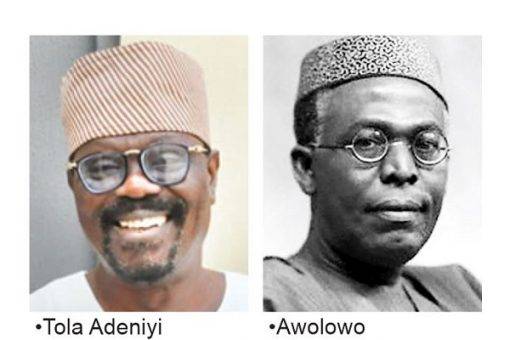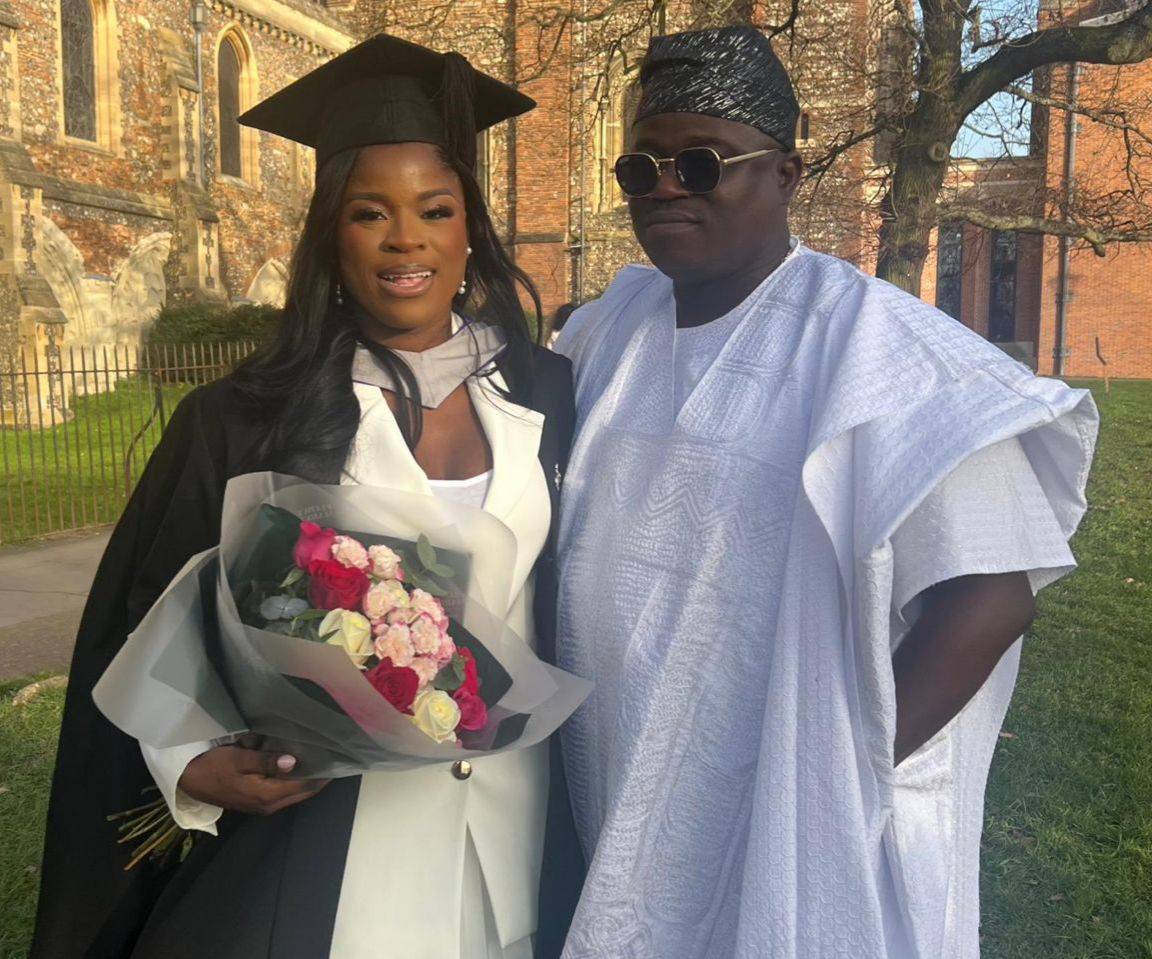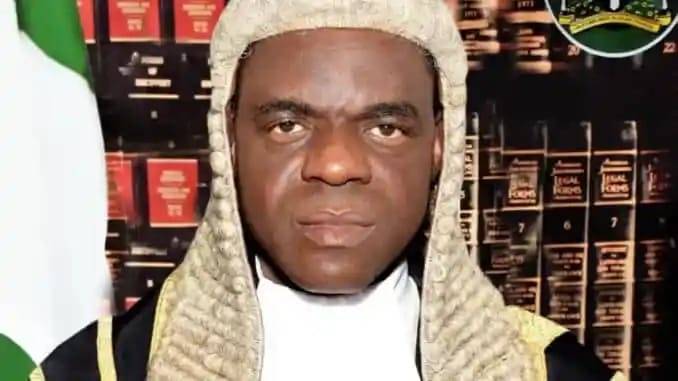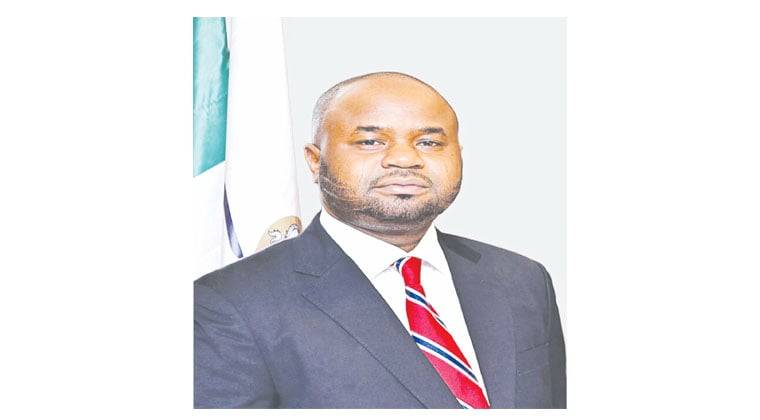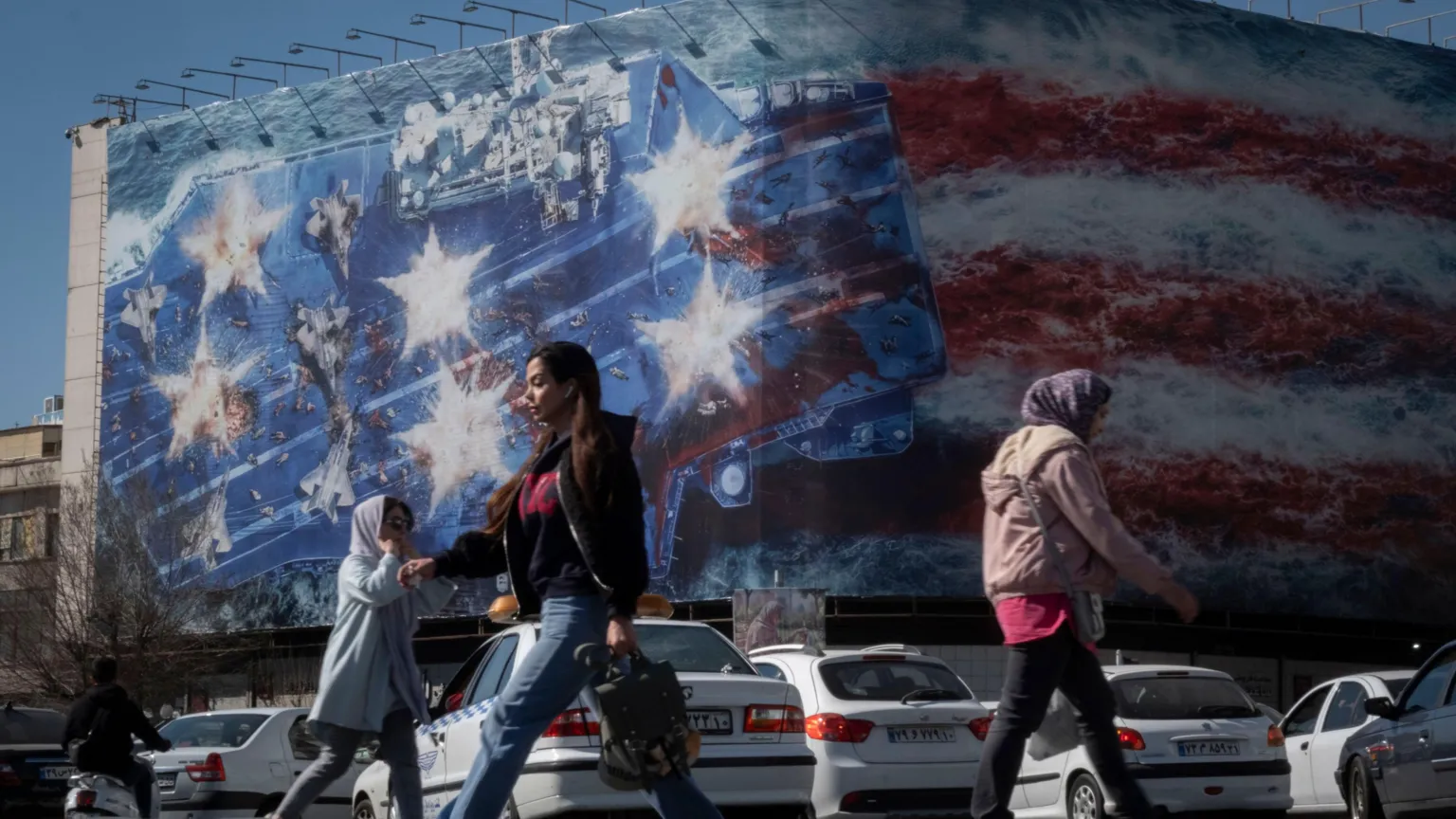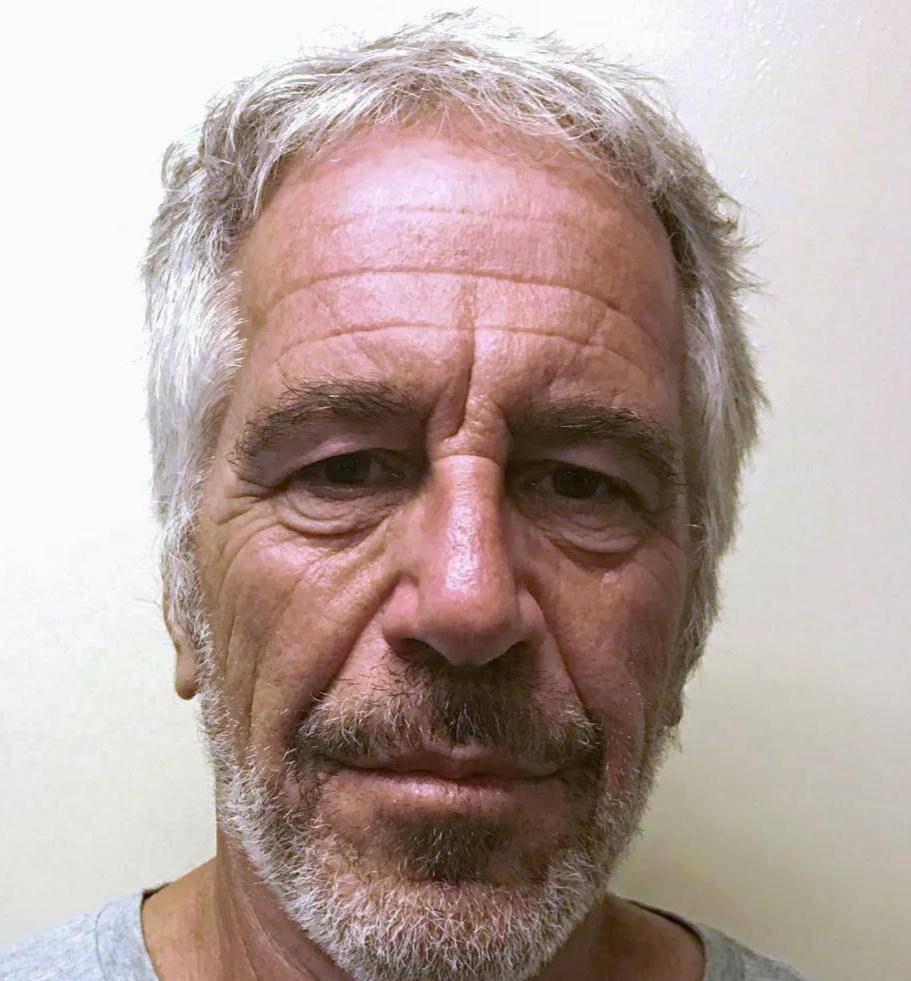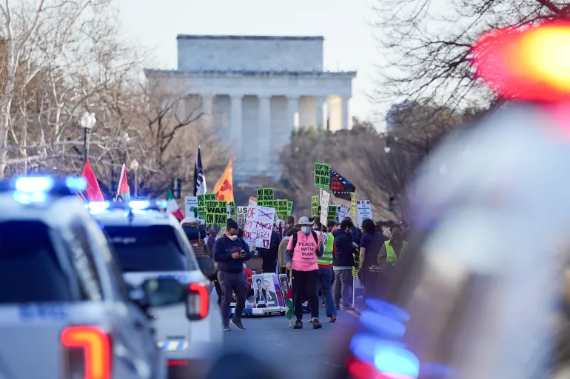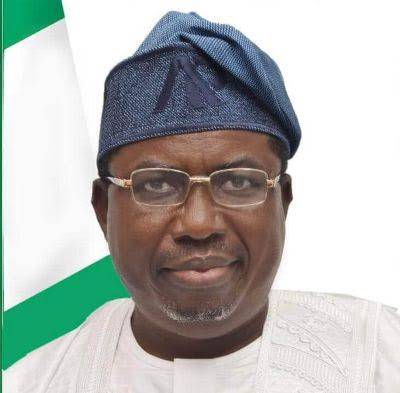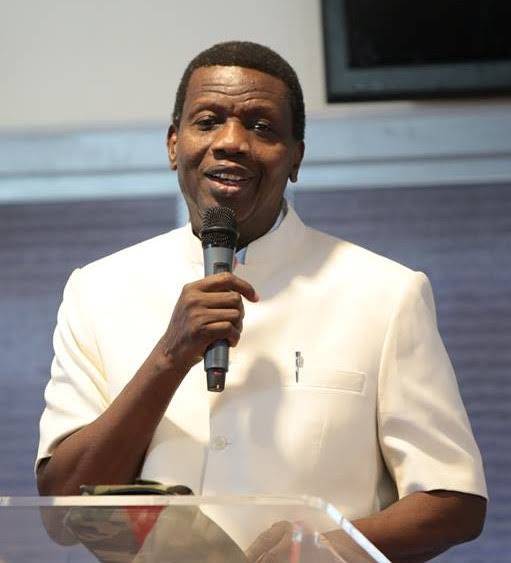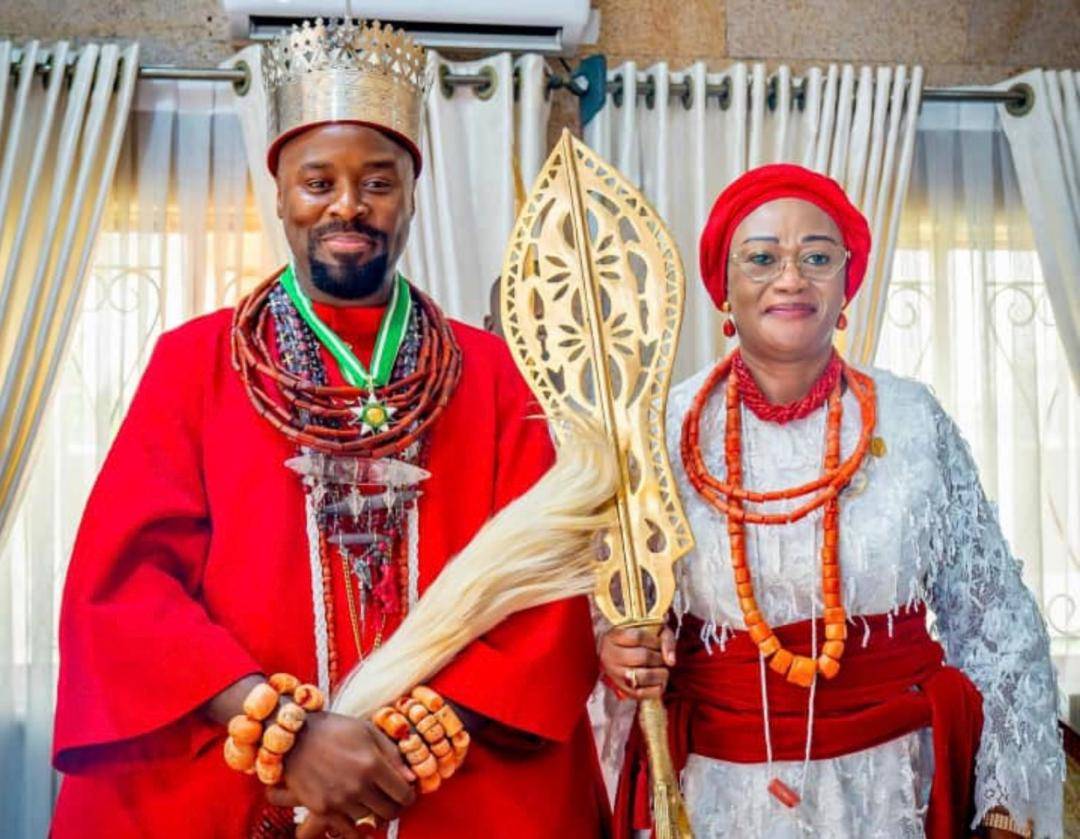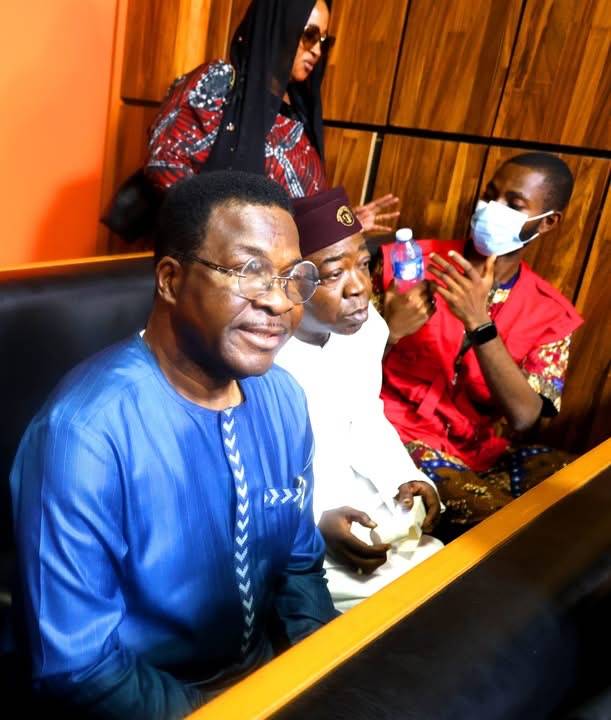By Segun Ayobolu
After more than five decades in practice as one of Nigeria‘s most noteworthy, versatile and courageous columnists, Akogun Tola Adeniyi’s pen remains as pungent, unsparing and hard-hitting as ever, even as he clocked eight decades this side of eternity earlier this year. Popularly known as ‘Aba Saheed’, his pen name during the golden era of his career at the defunct Daily Times conglomerate, easily Africa’s leading newspaper in the 1970s, his pen was an unrelenting thorn in the flesh of the military dictatorships of the time. In a recent characteristically fire-spitting article published online, he unleashed his undisguised wrath against what he described as ‘God-complex and Sycophancy’ in Nigerian politics.
Akogun Adeniyi was particularly irked by occupants of public office in Nigeria at all levels – local government Chairmen, State governors, all the way to presidents – who tend to play God and “frighten, humiliate, suppress, oppress and victimise whosoever of their constituents that have the courage and guts to challenge their authoritarianism”. Of course, the veteran journalist offers no concrete examples to validate his allegation, and so his assertion remains at the level of unproven analytic generalisation. For him, “These political office holders at the top of the ladder see themselves as mini-god! And they are made so by the pitiable farmers and praise-singers who worship at their feet”.
Continuing, he avers that “It is people who have lost self-worth or personal dignity and an otherwise honourable family identity who constitute the bulk of the unfortunate beings that have now created gods in political office holders and sadly, insist that others, those who still have their heads screwed on their necks, should follow them in their blind servitude”. Akogun Adeniyi’s vitriol in this regard is quite interesting given his own journalistic career trajectory. The earlier Aba Saheed’s vehement and thunderous denunciations of the excesses of power-drunk dictators at the Daily Times of the 1970s were a key factor in my being attracted to journalism as a medium of speaking truth to power and fighting for the greater public good.
But the Tola Adeniyi who moved on to the Nigerian Tribune during the second Republic (1979-1983) was far different from the Aba Saheed I had earlier idolised. Though a fervent admirer and supporter of Chief Obafemi Awolowo myself, indeed a polling agent of the Unity Party of Nigeria (UPN) in the 1979 elections as a secondary school student, I found the fawning and uncritical reportage of the activities of Awolowo and other UPN top shots of the time by the Tribune titles as unprofessional, irritating and largely unhelpful to the party.
Akogun Adeniyi’s column, such as ‘Till Death Do Us Part’ or Tai Solarin’s ‘The Stolen Presidency’ in The Tribune, lionised Awolowo and scathingly denigrated his opponents. If such journalism is borne of personal conviction, it has its own acceptable place in the profession. But Akogun unfortunately gives the impression that such idolization of political figures could only be a function of pecuniary considerations and servile sycophancy, a damning self-indictment.
One of my criticisms of Akogun Adeniyi and many other columnists of the period, not excluding the National Concord set up by Chief MKO Abiola to counter the pro-UPN media and fight Awolowo, was excessive over-generalization in analysis without the requisite theoretical or empirical contextualization or validation. The Punch to some extent but more especially the emergence of the path-breaking ‘Guardian’ titles provided a corrective to this unsavoury tendency.
We find this trait in the write up under consideration when Akogun Adeniyi submits with magisterial presumptuousness that “Nigeria is entering another stage of their comical and usually tragic political engineering cycle which invariably awards purchased victory to losers, blinds the actual winners with curious electoral loss”. Again, no concrete examples to prove the point. No attempt at logical or empirical justification. We must simply take the omniscient columnist’s word for it. Another example of the fabled ‘God-complex’ at work? His columns thus contributed significantly to entrenching the notion that the 1979 presidential election was won by Chief Awolowo, who was allegedly rigged out when a detached analysis of the polls and the dynamics of the politics of the time demonstrates that there was no credible pathway to an Awolowo victory in that election.
But then, the veteran journalist’s main grouse in this piece is with what he describes as a development over the last decade in which some Nigerian politicians claim to have ‘created’ or ‘made’ other politicians and thus demand undiluted loyalty from their supposed ‘creations’. In an essentially appeal to emotion, Akogun Adeniyi goes on to administer savage blows to this straw man of his creation, without citing even one instance of any politician allegedly claiming to have ‘created’ a fellow politician.
Adopting a rather romantic notion of democracy, he says that it provides “a guarantee for freedom of association, freedom of choice, and enhancement of fundamental human rights” in which “children of the same parents, husbands and wives can compete against one another in their bid to render service to the community. The husband may say he wants to provide roads, while the wife says she wants to provide clothing for the masses. No offence. No name-calling. No character assassination”.
It is doubtful if such a mythical rendition of democratic practice exists in most parts of the world that lay claim to adherence to liberal democracy – a system, by the way, under severe illiberal strain in most parts of the world. Akogun cites with approbation Mazi Samuel Goomsu Ikoku running in an election against his own father in an election and winning in the first Republic. I have no details of what led a son to such ruthless de-robing of his own father in the political marketplace, but it is the exception rather than the norm. In any case, following several political and ideological somersaults in his political career, suggesting an infirm philosophical and ethical foundation, SG Ikoku did not necessarily exit the political terrain in a blaze of glory.
In Akogun Adeniyi’s school of political thought, there can be no credible talk of ‘betrayal’ in politics. Politicians are free to pursue any line of action at any time. He defines politics in basically moral terms but endorses an essentially amoral disposition to political behaviour on the part of political actors. Of course, the perception of ‘betrayal’ is value-laden and, like beauty, may be in the eye of the beholder. Most active participants in politics who rise to prominence possess certain innate qualities that work in their favour. But it is illusory to pretend that there are no mentors or benefactors in politics; that there are no codes of conduct that bind leaders and the led, the violation of which may be construed, albeit debatably, as betrayal.
Of particular interest to me is the example of Chief Awolowo’s politics in the Western Region that Akogun Adeniyi cites to justify his thesis of democracy offering what amounts to a morally anarchical terrain in which political actors are free to act in any way they choose while pleading the right to democratic free choice as justification.
According to him, “Chief Obafemi Awolowo invited the best of the best to form a formidable team to constitute the best government there ever was in Africa in his time, but he never claimed he created Chief Adekunle Ajasin, Chief Samuel Akintola, brilliant journalist and lawyer, Chief Joseph Oduola Osuntokun, Dr Stephen Oluwole Awokoya, Professor Samuel Aliko, Chief Anthony Enahoro and several others. He regarded them as colleagues and assets. They were distinguished in their own right. He needed them. He saw quality in them. He was their leader, the team leader “.
This is at best a partial reading and rendering of history. For, what in the final analysis was the cause of the crisis between Akintola, Premier of the Western Region, and Awolowo Leader of the Action Group (AG) as well as Leader of opposition in the federal parliament; a crisis that not only led to a descent to anarchy in the Western Region but also directly resulted in the collapse of the First Republic and ultimately the tragic civil war? Some saw it as a result of differences in political strategy, with Awolowo wanting the AG to continue its quest for power at the national level, while Akintola preferred the party to restrain itself to the West while having a working accord with the NPC in the North.
Others saw the conflict as an inevitable result of the unrealistic divorce of the leadership of the party from the leadership of the government it controlled in the Western Region.
But the widespread perception, which is perhaps only gradually receding into distant memory with the passage of time, was that Akintola betrayed his leader in a bid to gain political control of the Western Region, and he acted in concert with extraneous forces bent on destabilising the West and decapitating Awolowo politically. Perhaps the most vociferous critic and opponent of Awolowo’s politics in the West was the exceptionally brilliant and charismatic Adegoke Adelabu of the ‘Penkelemesi’ fame. Instructively, no one ever accused him of being a betrayer.
In his interview with the famous Peter Enahoro in the ‘Africa Now’ magazine in the Second Republic, Awolowo had remarked that, while he had forgiven Akintola, he wished the site where he was assassinated was preserved to serve as a lesson to future generations on the consequences of treachery. I thought this was a rather chilling and extreme proposition at the time. Some of Yorubaland’s most illustrious sons were politically opposed to Awolowo in the Second Republic. They included Chief MKO Abiola, Chief Adisa Akinloye, Chief Olu Akinfosile, Chief Soji Odunjo, Chief Adeniran Ogunsanya, Chief Richard Akinjide, Chief Remi Fani-Kayode, Dr Omololu Olunloyo, Chief Adeyinka Adebayo, Chief Adeleke Adedoyin, Chief Areoye Oyebola, Chief Toye Coker and Chief Akanbi Onitiri, to name a few. Although politically unpopular in the South-West, nobody labelled them as traitors or betrayers.
However, when Chief Sunday Afolabi, Chief Akin Omoboriowo, who had authored a book on ‘Awoism’ as a political ideology, and Chief Busari Adelakun revolted against the UPN’s decision that its five governors be given automatic return tickets for a second term and dumped Awolowo for the NPN, they were promptly labelled traitors in the popular consciousness. I remember that Awolowo was on the campaign trail in Ekiti State when Afolabi and Adelakun decamped. The following day, he cut short his campaign and headed back to Ibadan. A mammoth crowd had gathered from morning at the historic Mapo Hall and waited patiently, dancing and singing, until the leader arrived at around 5 pm.
The crowd carried coffins bearing RIP inscriptions of the political decampees. The root of the perception of politics and betrayal, particularly in Yorubaland, runs deep and requires profound sociological, political and philosophical investigation to facilitate understanding, not simplistic and superficial analysis.


